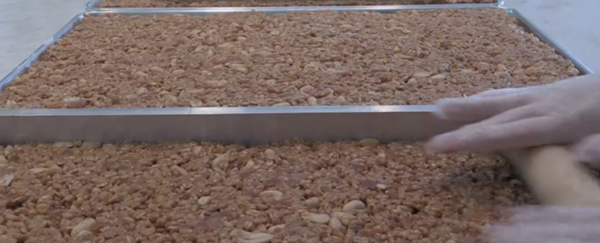While some innovators tackle 21st century social networking and space exploration, others are investigating ways we can be eating more healthily and more efficiently. The latest energy bar from the US, called the Greenbelly Meal, promises to provide one-third of your daily nutrition in just a few bites, with no preparation, cooking, or clean-up required.
Developed by 27-year-old entrepreneur Chris Cage, the bars were originally launched through a Kickstarter campaign, but are now officially on sale to everyone. "We really want to take the thinking out of eating," he explains to Fast Company. "Particularly while on the go, as fast food is just such an unhealthy, nutritional mess."
Cage dreamt up the idea of the meal-within-a-bar during a cycling tour of New Zealand. "I was just burning a lot of calories every day, and as I was cycling up to 100 miles, time and weight were very important resources," he says. "I didn't want to have something heavy on my bike, and I didn't want to have to stop and cook."
While a number of energy bars already existed on the market, Cage says none of them had the nutritional balance he was looking for. When he returned to the States, he teamed up with a food scientist and a chef to create the Greenbelly Meal bars using ingredients like brown rice, almonds, and cocoa.
Traditionally, energy bars are designed to boost our energy as quickly as possible: they're packed with carbohydrates and calories, giving the body a buffer of fuel that means exercise can be sustained for longer periods. The discovery that refuelling while exercising can be harmful led to the creation of the energy bar, where all the energy is pre-loaded - the downside is that if all those calories aren't used, they're stored up as fat.
While the Greenbelly Meal bars offer a more nutritionally balanced source of energy than a typical bar, they aren't as well-rounded as a fully balanced meal, and their maker doesn't recommend trying to live off them - each one packs in around 600 calories, with 200 of those from fat. They're designed to keep you going throughout the day rather than replacing your existing diet altogether, and they're priced like a meal rather than an energy bar too: each one costs around $7.
"I think it's best to get nutrition from a variety of sources and not eat only our bars," says Cage. "Not to mention you may get sick of them. We are taking on easy meals… and ours are healthier, nutritionally balanced, and easier."
